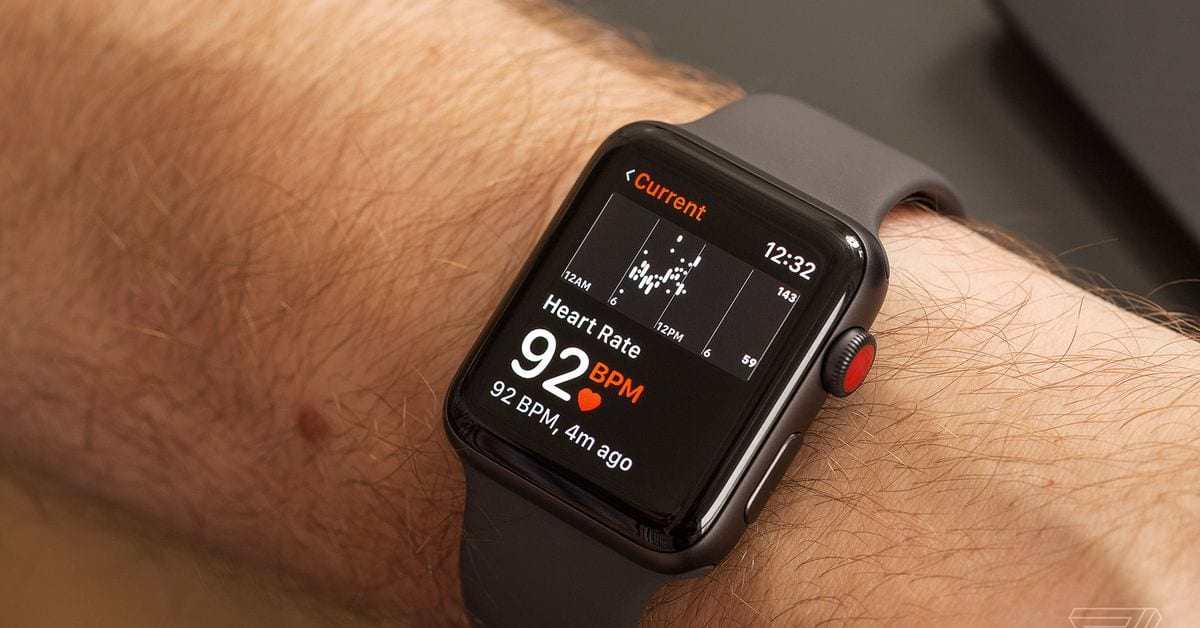Even people who dont have symptoms, like some individuals in this research study, may still feel the requirement to talk to a physician about an abnormal flag on a device like an Apple Watch.
And Apple isnt the only business flagging users with what its items pick up as irregular heart rhythms: Samsungs Galaxy Watch 3 has an EKG function, as does Fitbits Sense smartwatch. While the portion of individuals who get an unusual heart reading on one of these devices could be low (a research study of the Apple Watch discovered that less than 1 percent of users had an alert), millions of individuals utilize these products– so there could still be thousands of additional individuals going to the medical professional based on them.
Individuals who currently have an atrial fibrillation diagnosis, for example, arent supposed to utilize the Apple Watch feature– but over 20 percent of the people in the Mayo Clinic research study did have that diagnosis already. Many of the research study done on the Apple Watch, for example, focuses on how well it can identify atrial fibrillation, however it does not track how well it can really be used as a screening tool in the context of the health care system.
The heart monitoring feature on the Apple Watch might lead to unnecessary health care check outs, according to a new study released this week. Only around 10 percent of individuals who saw a doctor at the Mayo Clinic after seeing an abnormal pulse reading on their watch were eventually detected with a heart condition.
The finding reveals that at-home health monitoring gadgets can cause over-utilization of the health care system, said research study author Heather Heaton, an assistant professor of emergency medication at the Mayo Clinic College of Medicine, in an e-mail to The Verge. That might be pricey for patients and for the system as an entire, and it might take up doctor and patient time unnecessarily.
Heaton and the research study group scanned patient health records at every Mayo Clinic website, including offices in Arizona, Florida, Wisconsin, and Iowa, for points out of the term “Apple Watch” over a six-month duration from December 2018 to April 2019. The window came simply after Apple presented a function to identify unusual heart rhythms and after publication of a research study tracking how well the watches could spot atrial fibrillation.
They found records of 264 patients who stated their Apple Watches flagged a concerning heart rhythm. Of that group, 41 explicitly discussed getting an alert from their watch (others might have had an alert, but it wasnt mentioned specifically in their health record). Half of the patients already had a cardiac diagnosis, consisting of 58 who had actually been previously identified with atrial fibrillation. About two-thirds had signs, including lightheadedness or chest discomfort.
Only 30 clients in the study got a cardiac medical diagnosis after their medical professionals see. Many of the worrying heart display information, then, were most likely incorrect positives, the research study concluded. False positives, despite the fact that the client winds up being healthy, can still cause problems: they can press clients to get unnecessary health care and cause tension and stress and anxiety. Even individuals who do not have symptoms, like some people in this research study, may still feel the need to talk to a medical professional about an unusual flag on a gadget like an Apple Watch.
“It is difficult for a user to disregard an alert that they might have a major medical condition,” said Kirk Wyatt, an assistant professor of pediatrics at Mayo Clinic and author on the study, in an e-mail to The Verge.
And Apple isnt the only business flagging users with what its items select up as abnormal heart rhythms: Samsungs Galaxy Watch 3 has an EKG function, as does Fitbits Sense smartwatch. While the percentage of individuals who get an irregular heart reading on one of these gadgets could be low (a study of the Apple Watch discovered that less than 1 percent of users had an alert), millions of people utilize these products– so there might still be thousands of additional people going to the doctor based on them.
These kinds of items “blur the line between rigorously-studied medical gadgets and wellness tools,” Wyatt said. People might not understand how well they in fact work and what they ought to actually be used for. People who currently have an atrial fibrillation medical diagnosis, for instance, arent supposed to use the Apple Watch feature– but over 20 percent of individuals in the Mayo Clinic study did have that diagnosis already. The feature likewise isnt supposed to be utilized by anyone under 22 years old, but nearly 2 lots people with records in the study were listed below that cutoff.
Smartwatches may be beneficial methods for individuals to monitor their health on their own, at house, but its still not clear what their energy might be. Most of the research done on the Apple Watch, for example, focuses on how well it can discover atrial fibrillation, but it does not track how well it can actually be utilized as a screening tool in the context of the health care system.

